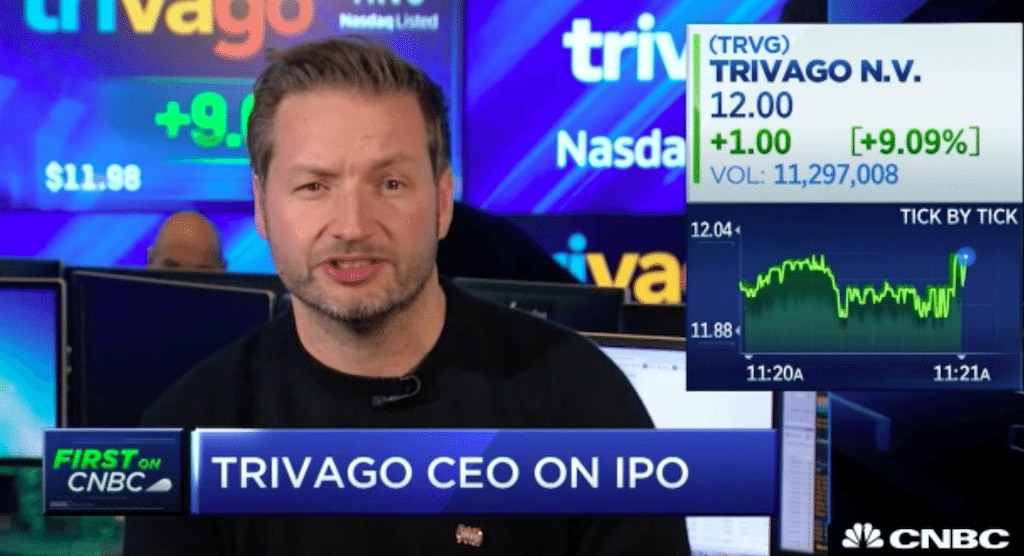Trivago CEO Says No Company Has Solved the Key Problem in Hotel Search

Skift Take
Rectifying the difficulties in shopping for hotels online is a tremendously complex problem given travelers' fickle nature -- a business trip today, a romantic escapade tomorrow -- and varying quality levels from property to property even within a given brand. Trivago at least recognizes what one of the main problems is in matching a traveler's hotel preferences with the right hotel and hopes to address it with a heftier bank account after conducting its IPO.
The problem with hotel search these days has little to do with showing more content, including photos, video or virtual reality, or even in improving the mobile experience, according to Rolf Schrömgens, the CEO of newly public company Trivago.
In a CNBC interview Friday, the day Trivago's stock debuted on Nasdaq, Schrömgens said the key problem -- one that can be solved by software -- is matching consumers with the ideal hotel, and that means gaining a better understanding about each individual property and what individual travelers expect.
“I think there is a major problem un

